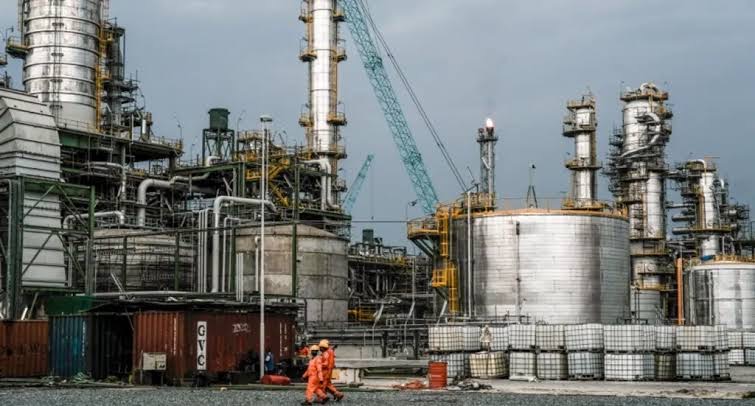In a significant development, Nigeria’s aviation industry has witnessed a remarkable transformation since the Dangote refinery began supplying Jet A1 fuel to local consumers. Despite a hike in prices, oil marketers and airline operators confirm a steady and reliable supply of the product, bringing sanity to the market.
According to Chris Ndulue, CEO of Cleanserve Energy and former Managing Director of Arik Air, “The supply of Jet A1 has been more reliable since Dangote Refinery started production. We anticipate no scarcity, barring crude supply hiccups.” Ndulue praised the refinery’s high capacity, noting local supply enhances quality control.

Currently, Jet A1 costs between N1,230 and N1,240 per liter in Lagos, N1,265 in Abuja, and N1,290 in Kano. Although higher than the earlier N900 per liter, experts attribute the increase to transportation costs. Dangote Refinery has the capacity to supply Jet A1 to the entire West African region.
Reduced Contamination Risk
Local supply minimizes contamination risks associated with importing fuel. Ndulue explained, “When imported, fuel moves through vessels, primary and secondary depots, and storage systems, increasing contamination risks.”

Airfares have decreased relatively, with tickets available for as low as N87,000 on Aero Contractors when booked three weeks in advance. Other airlines offer competitive prices. The increased capacity of airlines, such as Ibom Air, Value Jet, Aero Contractors, and Air Peace, has contributed to lower fares.
Air Peace plans to add two Boeing B777 and four Boeing 737-800 NG aircraft before December, boosting its fleet. Ibom Air will add two more aircraft by December. This expansion indicates a promising future for Nigeria’s aviation industry.
Dr. Thomas Ogungbangbe, CEO of CITA Aviation Fuelling Company Limited, noted, “Dangote Refinery’s production ensures reliability, but prices may not decrease due to global benchmark pricing.” He emphasized that modular refineries lack the critical equipment to refine Jet A1.
The Dangote Refinery’s impact on Nigeria’s aviation industry is undeniable. With stable supply, improved quality, and reduced contamination risks, the industry is poised for growth. While prices may not decrease significantly, the benefits of local production far outweigh the costs, ushering in a new era for Nigeria’s aviation sector.

































